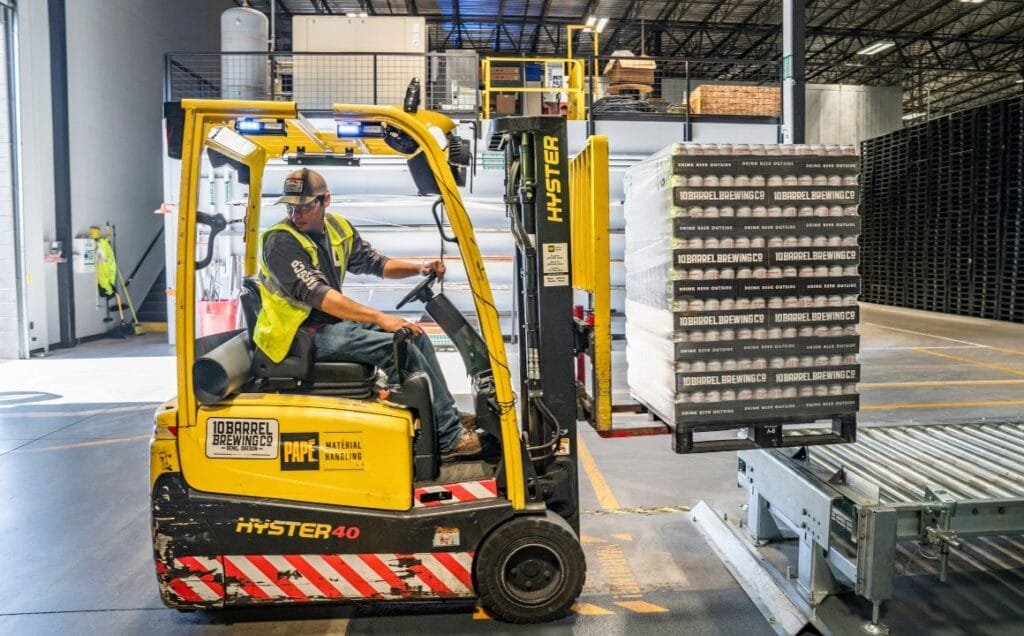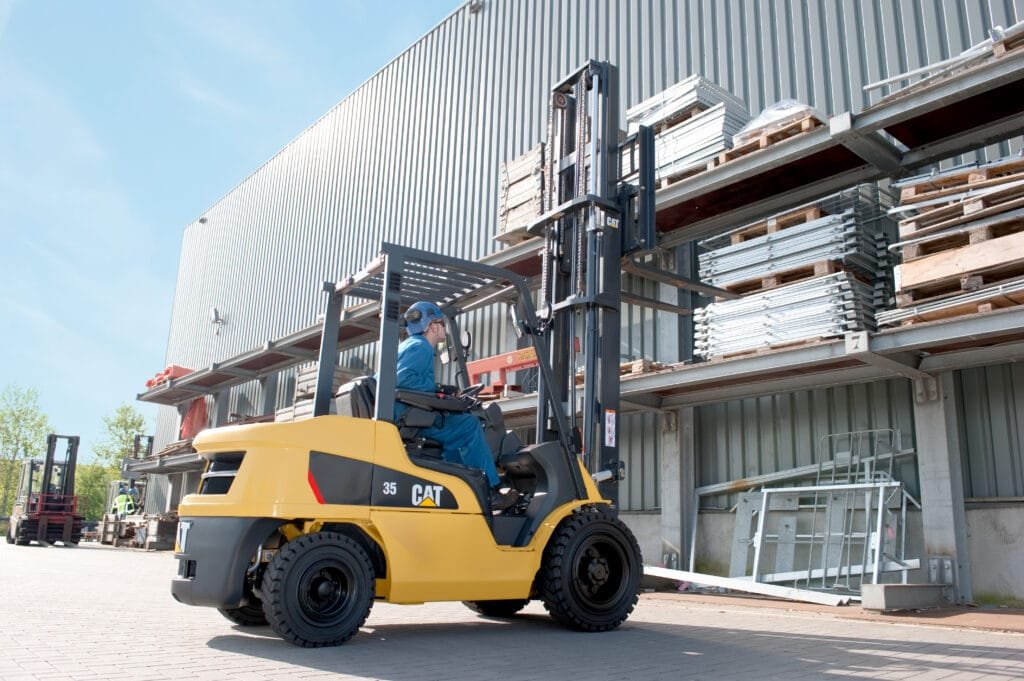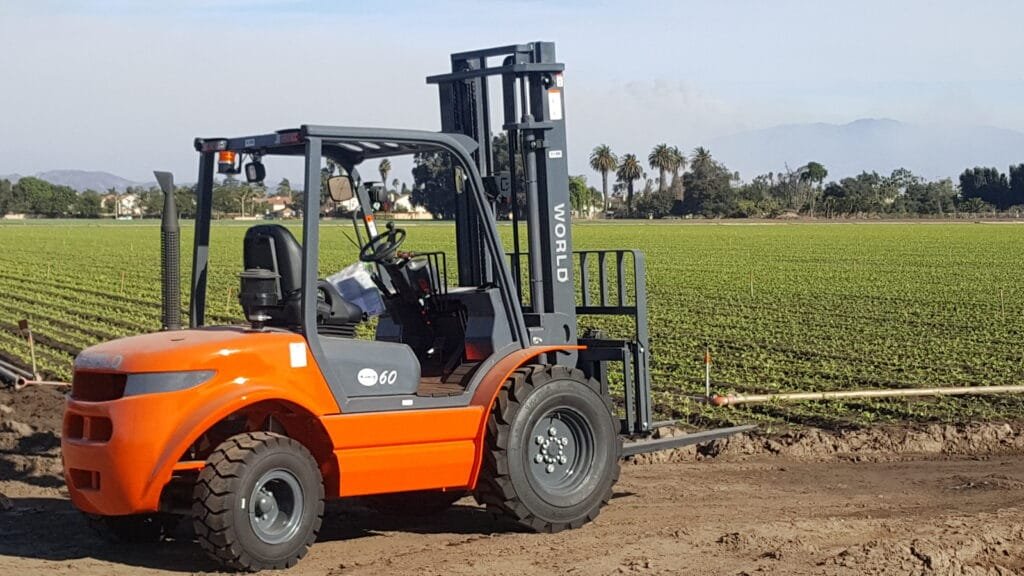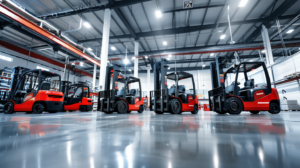Forklifts are indispensable in industries ranging from warehousing and logistics to manufacturing and construction. Choosing the right forklift for a specific scenario is crucial for optimizing productivity, safety, and cost-efficiency. This guide delves into the various factors influencing forklift selection, highlights the types of forklifts available, and offers practical insights to help you make the best decision.

Understanding the Basics of Forklift Selection
Why Forklift Selection Matters
Forklifts come in various configurations designed for specific tasks. Selecting the wrong type can result in inefficiencies, increased costs, or even accidents. The right forklift ensures smooth operations and maximizes the lifespan of the equipment.
Key Factors in Choosing a Forklift
- Load Capacity
- Know the weight of the loads you need to lift.
- Consider future scalability to ensure the forklift can handle potential increases in load requirements.
- Lift Height Requirements
- Assess the height at which goods will be stored or handled.
- Account for building dimensions and shelving configurations.
- Work Environment
- Indoor versus outdoor operations demand different forklift specifications.
- Consider terrain, floor conditions, and ventilation.
- Power Source
- Electric, diesel, and propane-powered forklifts each have unique advantages.
- Frequency of Use
- Choose a forklift that aligns with the intensity of its intended use.

Types of Forklifts and Their Ideal Applications
1. Counterbalance Forklifts
These forklifts feature a weight at the back to counterbalance heavy loads at the front.
- Best for:
- Indoor warehouses with narrow aisles.
- Handling palletized goods.
- Advantages:
- Easy maneuverability.
- Versatile for various load types.
2. Reach Trucks
Designed for high-reaching tasks, reach trucks are a staple in warehousing environments.
- Best for:
- Storing goods on high racks.
- Enclosed spaces with smooth flooring.
- Advantages:
- Enhanced lift height.
- Compact size for tight spaces.
3. Rough Terrain Forklifts
Equipped with large pneumatic tires, these forklifts are ideal for outdoor use.
- Best for:
- Construction sites.
- Agricultural operations.
- Advantages:
- Stability on uneven terrain.
- High durability in harsh conditions.
4. Pallet Jacks and Walkie Stackers
Small, hand-operated forklifts designed for lighter loads.
- Best for:
- Small-scale operations.
- Moving goods within short distances.
- Advantages:
- Cost-effective.
- Simple operation.
5. Articulated Forklifts
With a flexible mast and chassis, these forklifts are perfect for tight aisle operations.
- Best for:
- Narrow-aisle warehouses.
- Operations requiring high precision.
- Advantages:
- Space-saving.
- Highly maneuverable.
6. Telescopic Forklifts (Telehandlers)
Capable of extending forward and upward, telehandlers are versatile tools for construction sites.
- Best for:
- Lifting materials to great heights.
- Handling bulky loads outdoors.
- Advantages:
- Extended reach.
- Versatility for heavy-duty tasks.

Matching Forklifts to Specific Scenarios
Scenario 1: Indoor Warehousing
Key Considerations:
- Narrow aisles.
- Smooth flooring.
- Frequent loading and unloading of palletized goods.
Recommended Forklifts:
- Electric counterbalance forklifts.
- Reach trucks for high racks.
- Articulated forklifts for tight spaces.
Scenario 2: Outdoor Construction
Key Considerations:
- Uneven and rugged terrain.
- Heavy and bulky materials.
- Weather resistance.
Recommended Forklifts:
- Rough terrain forklifts for stability.
- Telescopic forklifts for high and extended reach.
Scenario 3: Retail Operations
Key Considerations:
- Moving inventory between storage and the sales floor.
- Compact storage spaces.
- Minimal disruption to customers.
Recommended Forklifts:
- Pallet jacks for light loads.
- Walkie stackers for mid-range lifting.
Scenario 4: Manufacturing Facilities
Key Considerations:
- Continuous operations.
- Versatility to handle raw materials and finished goods.
- Durability for heavy use.
Recommended Forklifts:
- Diesel-powered forklifts for heavy-duty tasks.
- Electric forklifts for enclosed areas.
Scenario 5: Ports and Dockyards
Key Considerations:
- Handling shipping containers.
- Large, open spaces with variable weather conditions.
Recommended Forklifts:
- High-capacity diesel forklifts.
- Telescopic forklifts for stacking containers.

Electric vs. Diesel vs. Propane Forklifts
Electric Forklifts
- Pros:
- Zero emissions; ideal for indoor use.
- Quieter operation.
- Lower long-term maintenance costs.
- Cons:
- Limited runtime; requires charging downtime.
- Higher initial cost.
Diesel Forklifts
- Pros:
- Powerful and robust.
- Suitable for heavy loads and outdoor use.
- Cons:
- Higher emissions; unsuitable for indoor operations.
- Noisy and requires regular maintenance.
Propane Forklifts
- Pros:
- Versatile for indoor and outdoor use.
- Quick refueling.
- Cons:
- Moderate emissions.
- Less environmentally friendly than electric options.
Safety Considerations When Choosing Forklifts
1. Load Stability
- Opt for forklifts with stability-enhancing features, especially for heavy or irregular loads.
2. Operator Comfort
- Ergonomics matter for long shifts. Look for adjustable seats and intuitive controls.
3. Visibility
- Choose models with clear sightlines for enhanced safety in crowded environments.
4. Training and Certification
- Ensure operators are trained for the specific forklift model to minimize accidents.

Cost vs. Performance: Balancing the Budget
- Initial Cost:
- Pallet jacks and walkie stackers are affordable options for small-scale operations.
- Long-Term Value:
- Electric forklifts may cost more upfront but offer savings in maintenance and fuel.
- Leasing vs. Buying:
- Leasing is ideal for temporary or seasonal needs.
- Purchasing suits long-term, high-frequency operations.
Nicosail: Your Trusted Forklift Partner
When it comes to selecting reliable forklifts for diverse scenarios, Nicosail stands out as a trusted brand. Known for their innovation, durability, and exceptional customer service, Nicosail offers a comprehensive range of forklifts tailored to meet industry-specific demands.
- Why Choose Nicosail?
- Extensive range of forklifts for indoor, outdoor, and specialized applications.
- Advanced safety features for operator and workplace security.
- Robust after-sales support to keep your operations running smoothly.
Whether you need a compact forklift for a retail space or a heavy-duty model for construction, Nicosail delivers quality and performance that you can count on.
Conclusion
Choosing the right forklift for different scenarios is a nuanced process that involves understanding your operational needs, environment, and budget. By carefully considering these factors and exploring the various forklift types available, you can ensure optimal productivity and safety in your operations. And when in doubt, trust a reputable brand like Nicosail to provide reliable solutions tailored to your needs.





